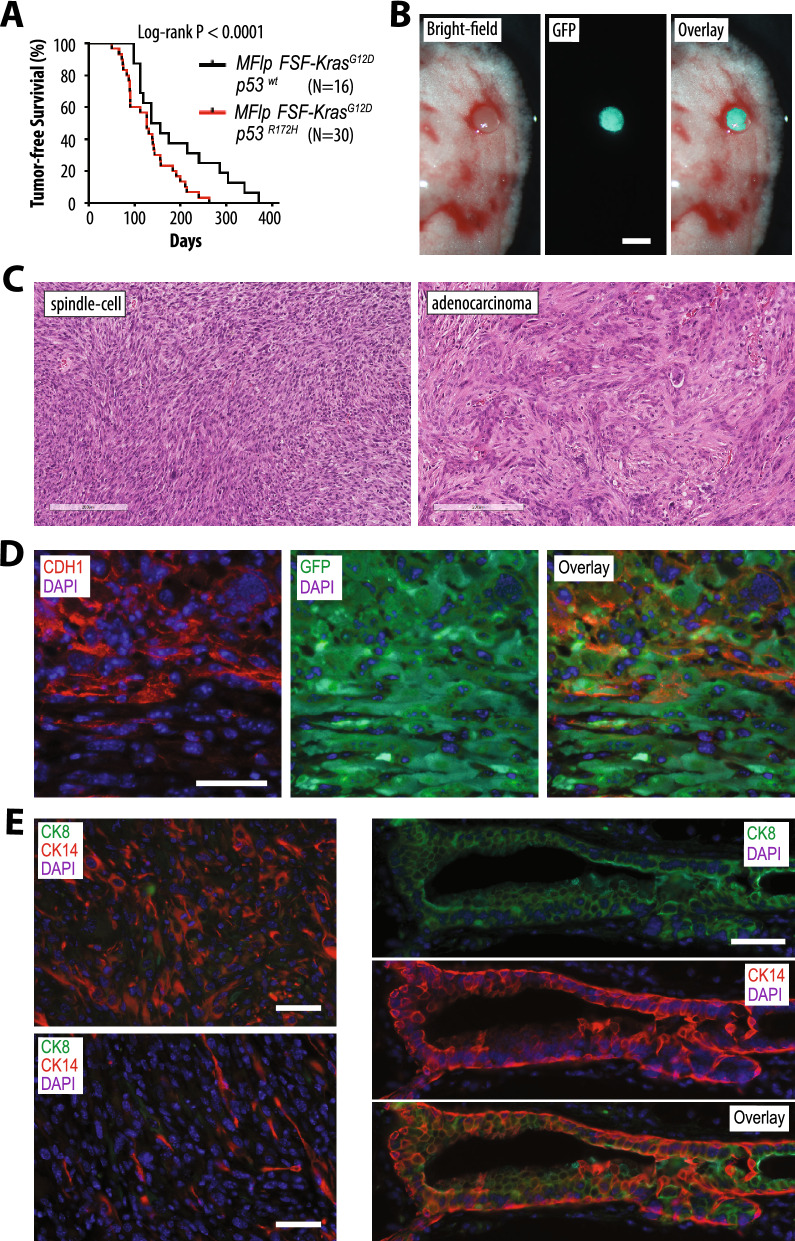Figure 5.
A single mutant p53R172H allele leads to an earlier onset and faster malignant progression of KRAS-induced mammary cancer. (A) Kaplan–Meier plot comparing the tumor-free survival of females that expresses KRASG12D in the mammary gland (MMTV-Flp FSF-KrasG12D) with or without one mutant p53R172H allele. Statistical significance in tumor-free survival between these experimental groups was calculated with the log-rank (Mantel-Cox) test. (B) Bight-field and GFP fluorescent images of the lung tissue with a GFP-positive metastatic lesion from a mammary tumor-bearing MMTV-Flp FSF-KrasG12D Rosa26CAG-FSF-GFP p53R172H quadruple transgenic female; bars, 1 mm. (C) Hematoxylin and eosin-stained histological sections of mammary cancers from MTV-Flp FSF-KrasG12D p53R172H mice; bars, 200 µm. (D) Immunofluorescent (IF) staining of E-cadherin (CDH1) and GFP in a mutant p53R172H and KRASG12D-induced mammary tumor; bar, 50 µm. (E) IF staining of cytokeratins (CK) 8 (green) and 14 (red) in mammary tumors with predominantly epithelial or mesenchymal appearance (left) and a premalignant mammary duct (right); bars, 50 µm.

